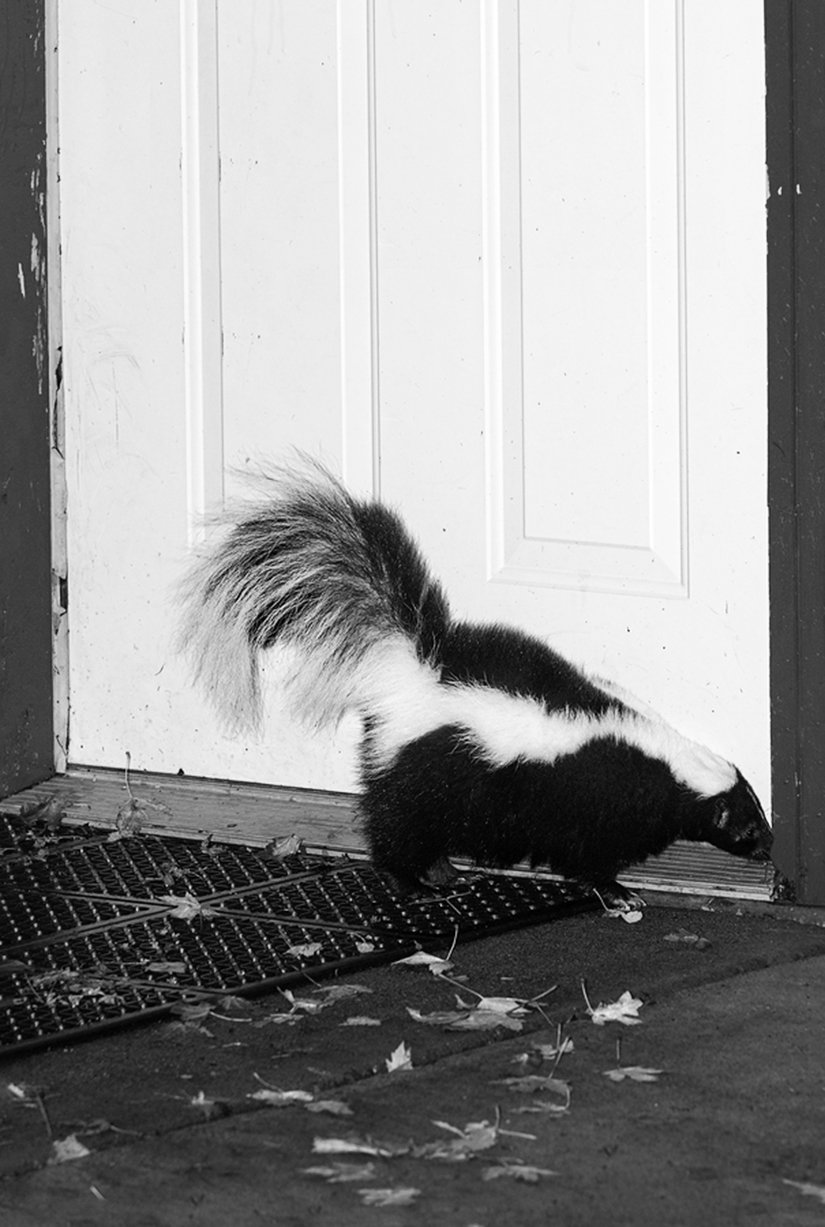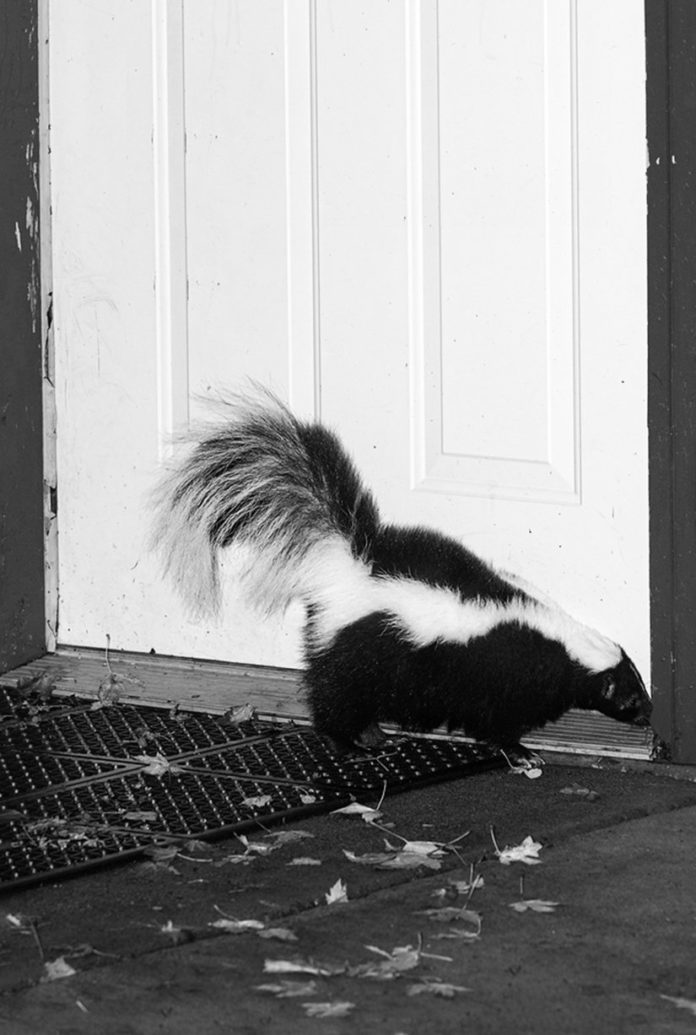With the arrival of warm weather, your cat’s curiosity and need to tap his inner hunter could land him on the losing end in a confrontation with bees, wasps, skunks and other critters making their way onto your property or inside your home.
Don’t try to train your indoor cat — who is hardwired to pursue prey — not to chase, swat or eat a wayward stinging insect. As for a skunk encounter, your indoor-outdoor cat may try to duel a hungry skunk over a bowl of kibble left on your porch. This can put your cat at risk of being bitten, sprayed in the face and exposed to rabies.
“The real issue is the number of stings the animal gets and whether he or she is allergic to the sting,” says dermatologist William H. Miller, VMD, a director of the Companion Animal Hospital at Cornell University School of Veterinary Medicine. “The skunk can fight as well as spray and create significant damage. Depending on the region, the skunk may have rabies to add to that problem.”
1. The Buzz on Bees
Honey bees are work-driven insects on pollinating missions. They are out in the heat of the day, flying from flowers and ground covers to collect pollen. They tend to sting only when protecting their hives or when cats aggressively stalk them.
However, killer bees can be provoked to swarm attack on cats. “Most bees don’t leave their stingers in the skin of an animal, but if they do, you can carefully remove the venom sac so it does not rupture and spread the venom,” says Dr. Miller.
Slide the edge of your driver’s license or credit card against it to push it out. Monitor your cat, and if necessary, consult his veterinarian about a pet-safe antihistamine to reduce mild swelling.
It can take hours for an oral over-the-counter medication to be effective, Dr. Miller says. However, some cats can have a severe allergic reaction to insect stings. If your cat’s throat swells, cutting off his air supply, and he begins breathing rapidly, wheezes, vomits, trembles, displays pale gums or collapses, immediately take him to the veterinarian. He could be going into anaphylactic shock.
“An allergic animal who receives multiple stings can develop a life-threatening reaction,” Dr. Miller says. “Be prepared to do CPR if necessary, especially with swelling around the throat that may block breathing. And get to the clinic as quickly as possible.”
If a bee enters your home, shuttle your cat into a closed room and try to usher the bee out a door. Restrict access to popular bee areas: flowerbeds with pollen-producing plants and yards with clover.
2. The Word on Wasps
Unlike honey bees, members of the wasp family — including yellow jackets, paper wasps and hornets — tend to be aggressive attackers that repeatedly sting their targets. Heed the same care advice for bees.
Wasps tend to make nests in holes in the ground, eaves, porches, sheds and fencing. Regularly inspect these areas for signs of nests, especially in summer. Contact a pest control company if you find multiple nests or a large one. For a small nest, don long sleeves and pants, follow the instructions on the pesticide container and spray at night when wasps are less active and apt to be inside the nest.
© hkuchera | Bigstock

3. The Story on Skunks
Bowls of kibble on porches attract both friendly feline strays and bold, hungry wildlife like skunks. They will bite, claw and release their eye-stinging spray in fights with cats.
If your cat was sprayed but not bitten, remove the foul odor on him with the home remedy in the caption on this page. Put on rubber gloves and work this mixture into your cat’s coat, being careful not to get it into his eyes. You may need to repeat this process a few times before the odor has mitigated and you can wash your cat with pet shampoo and towel dry.
“Normal skunks tend to be nocturnal, but if a skunk has rabies, its normal behaviors are altered,” says Dr. Miller. “Contact your animal warden if you see a skunk in your yard acting funny, as it may have rabies.” Normal skunks walk in a straight line and move away from pets or people. If the skunk is staggering like it’s drunk or is heading toward you or your pet, leave the area immediately.
If the skunk bites your cat, aside from taking him for medical attention, contact the local health department immediately.
Cornell offers online Pet CPR training open to all. Information is at www.
ecornell.com/courses/veterinary-courses/pet-cpr/. The fee for the one-hour course
is $45.




